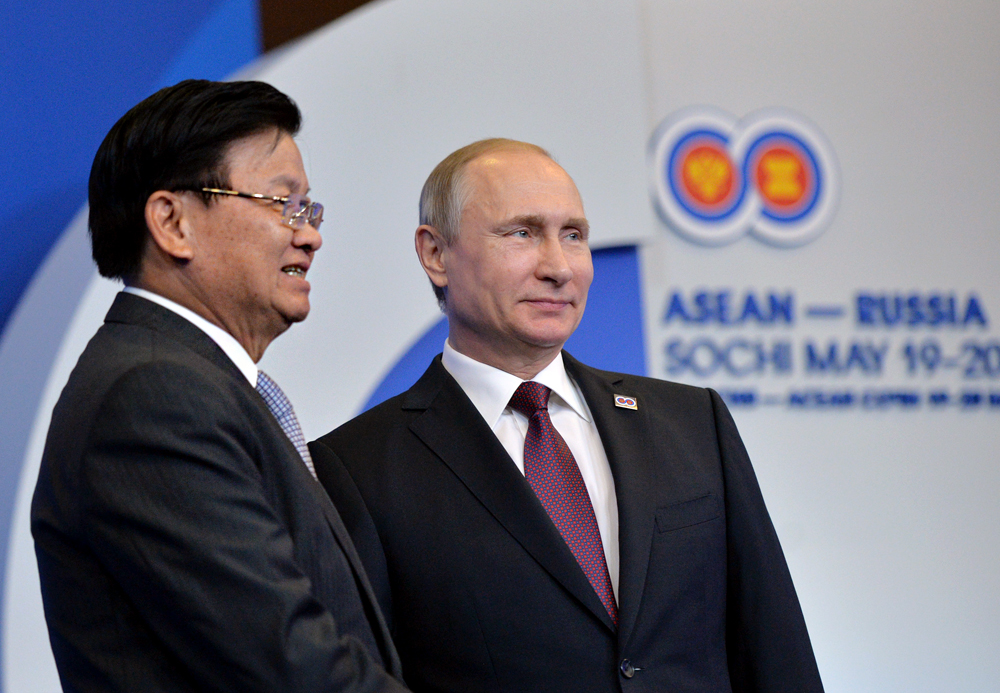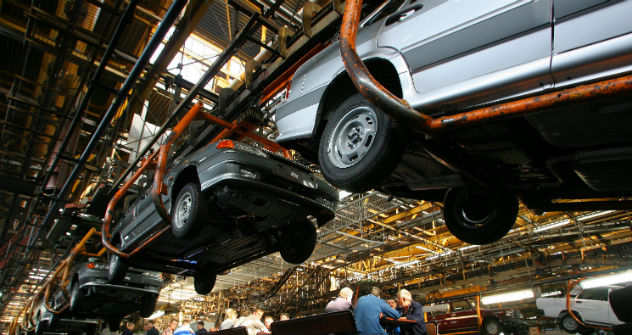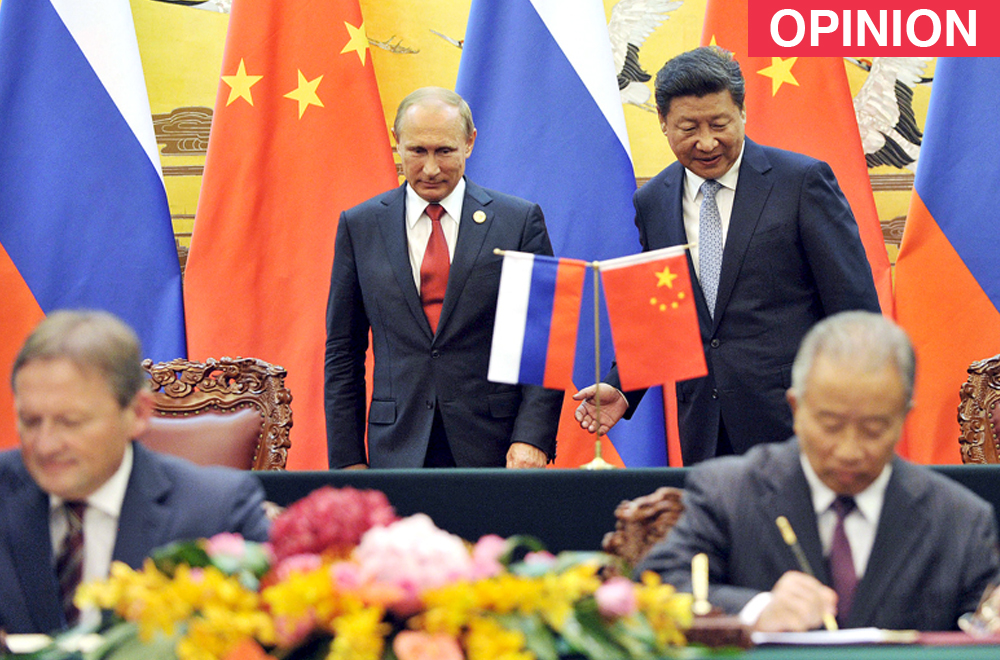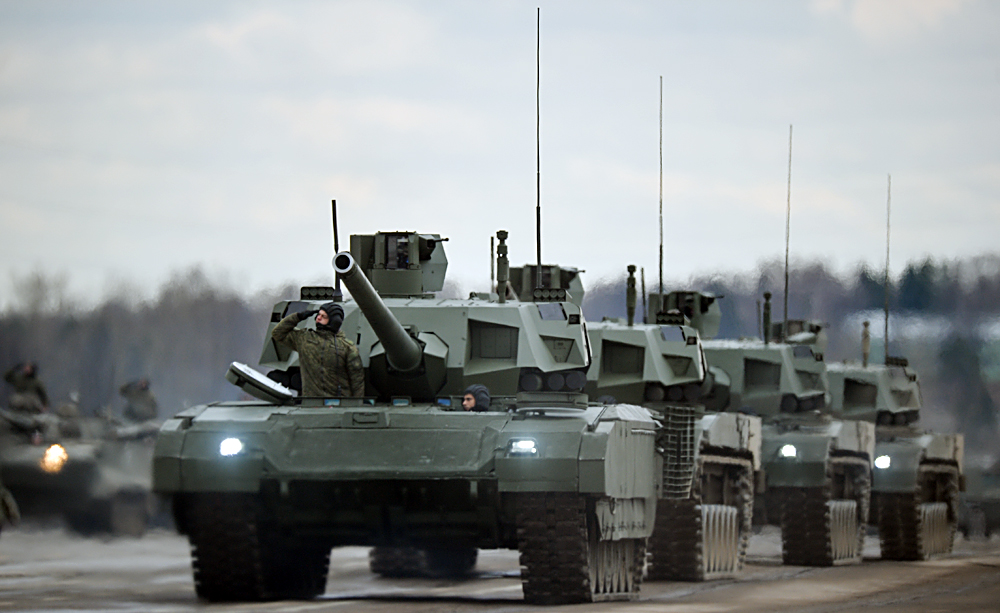Greater trade ties key to Russia becoming ASEAN’s strategic partner–expert

Russia's President Vladimir Putin (R) and Laos' Prime Minister Thongloun Sisoulith in Sochi, Russia, May 20, 2016.
Alexei Druzhinin/TASSGiven their longstanding ties, how can Russia benefit from the Laotian chairmanship of ASEAN?
I believe that the agreements signed at the Russia-ASEAN summit will begin to be implemented under the present Lao chairmanship of ASEAN. Ever since the Soviet era our countries have shared traditional ties of friendship. After joining ASEAN, Laos has always advocated for the development of a political dialogue and the strengthening of the economic partnership between Russia and the grouping.
There are different forms of trade and economic cooperation between Russia and Laos. This allows us to think that Laos, as the country holding the ASEAN chair, will make efforts for the development of cooperation between ASEAN and Russia.
Do you see Moscow's traditional allies in Southeast Asia (Vietnam, Cambodia and Laos) acting as a bridge between Russia and ASEAN?
Of course. The growth of Russia-Vietnam economic relations is of the highest importance for Russia in this region.
The old ideological unity does not exist anymore, but Vietnam, Laos and Cambodia remain strategic allies and friends of Russia. Russia actively builds up its military-political cooperation, particularly with Vietnam. On many issues the positions of these countries and Russia in the UN look alike. Therefore, this ‘Indochinese’ bridge connecting the Russian Federation with other ASEAN countries really does exist.
How can Russia leverage its ties with these countries to boost its ties with ASEAN?
Speaking about ASEAN, you need to keep in mind that it is composed of very different countries, when it comes to their political structure and views on foreign policy. They don’t have, for example, a single line of conduct towards the United States or China.
Objectively Vietnam and Laos will, most likely, due to historical reasons and ties, play the role of the main lobbyists of Russia in the region. But what really can tie Russia and the ASEAN countries together is a more active ‘expansion’ of Russian economic activities in Southeast Asian countries. Today we are behind China, the United States and India. And given the fact that ASEAN is primarily an economic bloc, it is important to develop economic leverage.
Given the success of the 20th anniversary summit in Sochi, are we likely to see a more regular summit-level format for Russia and ASEAN?
At the moment there have only been three such summits. It is not enough for 20 years, especially if you compare the number of summits between ASEAN and China. If we see more mutual economic, transport, energy and financial projects and if those dialogue structures that Russia and ASEAN built in the past 20 years will work effectively, then summits may occur more often.
What are the chances of an ASEAN country hosting a summit between the bloc and Russia in the near future?
Why not? After all, there are ASEAN-China, ASEAN+3 summits, and summits inside ASEAN. I think in the future this option looks quite real, especially if the overall development of relations seriously rises.
ASEAN has a strategic partnership agreement in place with China, India and the U.S. What are the chances of Russia being accorded this status?
I believe that from the point of view of ASEAN’s interest in maintaining the regional balance of power, there is a real possibility of such a status. But I would like to note here that those three countries have much stronger commercial relations with ASEAN countries than Russia does at the moment. And if we move in that direction, then this prospect will become a reality.
What are the challenges that come in the way of greater Russia-ASEAN ties?
Russia is clearly behind China, the U.S., India and Japan when it comes to its share in the ASEAN market. It should also be noted that not all large Russian companies are willing to go to Southeast Asia.
There are also political challenges. Many countries in this zone (Indonesia, Philippines, Malaysia, and Singapore) were under the influence of the US and the West in both economics and foreign policy. This means that Russia will be find it extremely difficult to compete with the West and its companies in these markets.
Where are the immediate opportunities for Russia and ASEAN? How important are Moscow's growing ties with Bangkok in the overall dynamic of Russia-Southeast Asia relations?
I think it will be manifested in contracts signed for the building of railroads, development of nuclear power plants, and cooperation in the energy sector. With Thailand there are joint investment projects in the agricultural sector and in high technologies. It is obvious that in tourism there is much to do in the first place with Thailand and other countries. Our fellow citizens are increasingly visiting Vietnam, Malaysia, Indonesia and Cambodia.
Would the ASEAN Economic Community be open to a free trade agreement with the Eurasian Economic Union (EAEU)?
On the one hand, a number of countries, including Vietnam, Cambodia, and Singapore have made relevant statements. This issue needs careful consideration by the corresponding authorities of ASEAN and the EAEU.
I don't think China would be against it, but the response of the U.S. is too easy to predict. Given the fact that they continue to influence the foreign policy of a number of influential countries in ASEAN, I'm not sure that we will see such an agreement soon.
Read more: Russia to rule Vietnam arms market despite US entry
All rights reserved by Rossiyskaya Gazeta.
Subscribe
to our newsletter!
Get the week's best stories straight to your inbox


